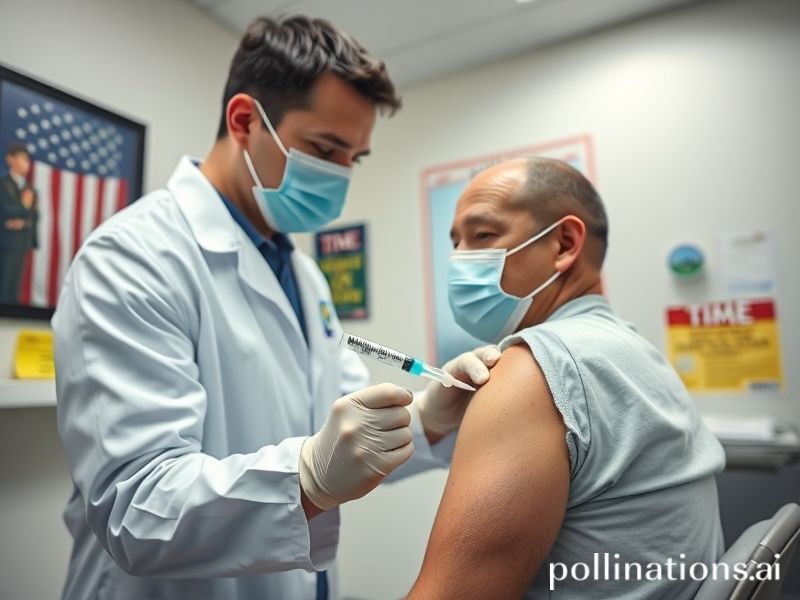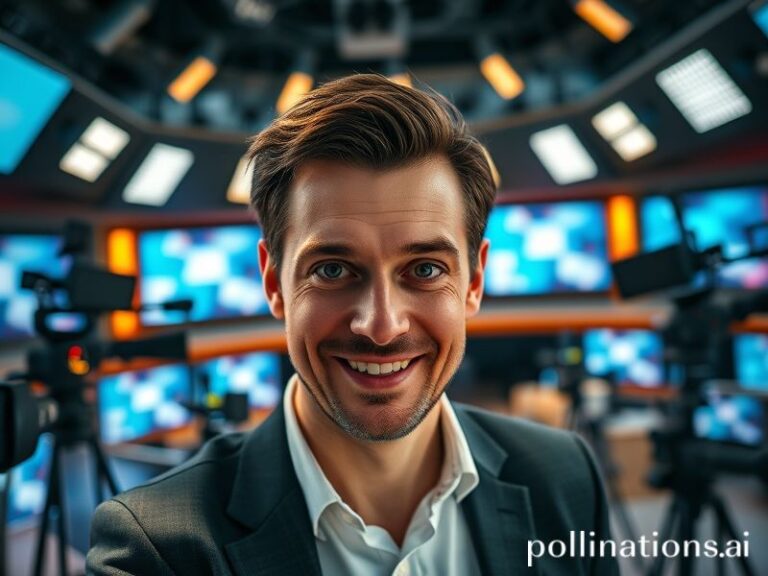CDC’s COVID Vaccine Triumph: How America’s Shot at Salvation Became the World’s Most Exclusive Club
**The Great Vaccine Waltz: How CDC COVID Shots Became the World’s Most Exclusive Democracy**
If there’s one thing humanity excels at, it’s turning salvation into a spectator sport. While the CDC’s COVID-19 vaccines were busy saving American lives, the rest of the planet watched with the peculiar mixture of envy and schadenfreude usually reserved for royal weddings and cryptocurrency millionaires. The United States, that champion of free-market capitalism, had accidentally created the world’s most exclusive pharmaceutical nightclub—and everyone wanted past the velvet rope.
The irony wasn’t lost on anyone watching from abroad. Here was America, land of the $1,000 ambulance ride, suddenly distributing life-saving medication for free with the efficiency of a Swiss railway. Meanwhile, in countries that had perfected universal healthcare, citizens were calculating whether their grandmother was more valuable than their car. The global south, accustomed to being everyone’s pharmaceutical afterthought, observed this American largesse with the weary amusement of someone who’s been stood up before.
International implications spread faster than the virus itself. The European Union, never one to miss an opportunity for bureaucratic poetry, responded with its own vaccine program that moved with the urgency of a continental drift. Britain, fresh from its Brexit victory lap, discovered that leaving the EU was like quitting a dinner party right before they serve the vaccine soufflé. The Commonwealth watched as their former colonial master learned that “Global Britain” translated to “back of the queue” in pharmaceutical speak.
But the real theater unfolded in the developing world, where the CDC’s success became a macabre economics lesson. Countries that had spent decades being lectured about fiscal responsibility watched American deficit spending save lives at warp speed. The same IMF that had prescribed austerity for African healthcare systems was now watching Washington print money for mRNA shots. It was like attending a Weight Watchers meeting while your host ordered pizza—educational, certainly, but not particularly enjoyable.
China and Russia, never ones to waste a soft-power opportunity, rolled out their own vaccines with the subtlety of a bear on a bicycle. Sputnik V arrived with all the grace of its namesake, while Sinopharm promised protection with Chinese characteristics. The result? A global vaccination landscape that resembled a Cold War spy swap, with countries choosing sides based on geopolitical loyalty rather than medical efficacy. Albania’s vaccination rate became a NATO membership application; Hungary’s choice of Sinopharm was essentially a love letter to Beijing wrapped in a syringe.
The WHO’s COVAX initiative, designed to ensure equitable vaccine distribution, operated with all the effectiveness of a UN peacekeeping mission—well-intentioned, underfunded, and perpetually arriving just after the shooting stops. While America debated booster shots for teenagers, African healthcare workers were calculating their odds of survival with the mathematical precision of a Vegas card counter. The phrase “vaccine nationalism” entered our lexicon with the same moral clarity as “ethnic cleansing”—a sterile term for an obscene practice.
Three years on, the CDC’s vaccine miracle has become a case study in American exceptionalism’s double-edged sword. Yes, Operation Warp Speed was a triumph of scientific innovation and bureaucratic competence—two phrases rarely associated with American governance. But it also revealed that in a globalized world, hoarding salvation is as effective as locking your front door while your house burns. Variants don’t carry passports, and viruses observe no immigration restrictions.
The punchline? America’s vaccine success helped create the conditions for its own ongoing pandemic purgatory. Each new variant emerging from under-vaccinated populations abroad became another opportunity for domestic panic, another chance for cable news to discover that viruses evolve faster than American attention spans. The CDC’s vaccines didn’t just save lives—they became the world’s most expensive lesson in interconnectedness, taught by a country that keeps failing the same course.
In the end, we learned that nationalism dies harder than people do. The same species that can sequence a virus in weeks and develop vaccines in months still can’t master the basic concept of sharing. Perhaps the real pandemic was the selfishness we caught along the way.







